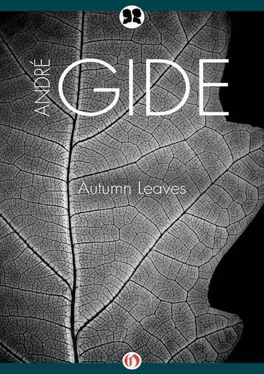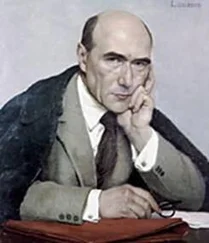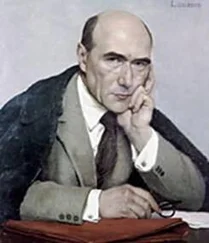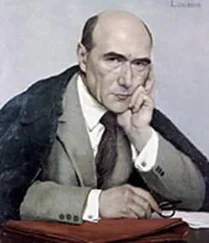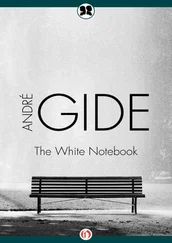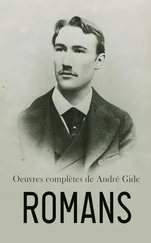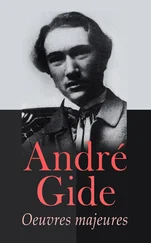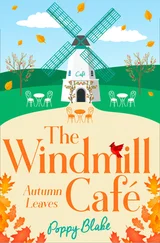(A little later I spent my Easter vacation in Calvados.…) Anyone who has not gotten up before dawn does not know all the quivering, the uncertain rustling, the murmuring, that can glide into the copses in the springtime. The ardent adolescent, tormented by an unknown restlessness, leaves his scorching bed to go in quest of the key to the mystery. It is the hour when the sky, in the east, begins to pale. Like a prisoner escaping, he leaves his room, goes groping along the corridor still in darkness; he descends the stairs noiselessly, carefully avoiding the step which he knows his foot would make creak, for he is afraid of waking his mother; he draws the bolts of the streetdoor, which he opens; and now he is under the vast sky, alone, wild with delight and skipping like a dancer; his step, as he crosses the yard, is so light that it hardly makes the gravel crunch; he runs toward the footpath in the woods, enters it, offers his face to the dew that the branches are shaking on it; he is in league with the game; the deer do not flee; the squirrel hides behind a tree but it is for the fun of it; he comes to the edge of the wood and, on the damp fields, surprises the erotic gambols of the hare and his doe. When, intoxicated with delight and rapture, he reaches home where his parents are still asleep, he hears sounding afar off the angelus.
I have seen, since, the plains of Morocco turn iridescent, become sprinkled with orange-colored marigolds, with little blue convolvulus and with many a smiling flower. I have seen, under the palm trees of El Kantara, sheltered by the high palms, the white apricot-trees which, humming with bees, shelter in turn the barley fields. I have seen the cemetery of Blidah (which is now, alas! nothing but a barracks) fill up with roses; its sacred woods with the singing of birds. I came there as a convalescent and felt, as though within me, the whole of nature finally awakening from her winter lethargy. I have seen the plains of Lombardy risk their first smiles; I have seen Rome and Florence filling up with bouquets.…
Some years ago, I wanted to surprise, on the icy plateaus of the Alps, the first quivering of life in answer to the first caresses of the sun. But I got there too soon; on the close-cropped turf the melting of the snow made little lakes in which were reflected the austere pines and the skeleton-like larch-trees. Some russet heather seemed to be resigned to death; nothing was ready; nature was still sulking. I thought I was on the boards of a theatre during the intermission, when they are getting ready for a change of scenery; I was indiscreetly present at what the drop-curtain hides from the eyes of the audience awaiting the striking of the gong; and it might also have been said that, half dried of winter, there still trailed over the ground, as in a room during the process of moving, rotten matting and those hideous cloths used for scouring the flagstones and that are called, I believe, serpillières, of which the mounds of rusty, old, last year’s ferns made me think irresistibly. And I was about to turn back toward more pleasing country, when suddenly, on climbing up a little eminence and leaving behind me the sleeping forest, I discovered, on an open space where patches of snow still lingered, a mass of little white crocuses, silky and delicate, that could no longer restrain their impatience to put in a word, and were risking their fragility through the thick carpet of the mosses. And I could have wept for tenderness, for this reaffirmation of love and life never seems more moving than when death surrounds it. In like manner the big pale lavender choke-weeds took on an unexpected elegance in the desolate sand of the desert. So it was at Olympus, that last spring among the ruins.
I remember … it was beyond Touggourt; we had ridden for a long time over the arid dunes to reach a miserable village composed of a few low sand-colored houses; insensible to the seasons, it appeared. The few Arabs parked there, around a Zaouia, must have partaken of life in a very sorry fashion; anchorites, doubtless, who had no contacts except with God. One of the monks led us into a little inner courtyard, without shade or coolness, but in the middle of which diligent care was keeping alive a very delicate bush that the season was inviting, in spite of the barrenness all around, to bloom. I remember the tender smile of the Arab when, indicating to us his few fragrant flowers, he said only: Yasmin! and our eyes filled with tears.
Yes, it is of all those memories piled one on the other that I construct the abstract image of spring. And that, too, is what causes my restlessness on the first fine days: I should like to be able to contemplate the springtide everywhere at the same time. With the result that I am not perfectly comfortable anywhere, even if it were in the most beautiful garden in the world, or even in my little garden at Cuverville at the time when I was personally acquainted with each flower. As soon as the air is warm enough and the sky blue, I wish to evaporate into the whole of nature, carried away by the passing breeze, floating without bonds here and there. Oh! never to be anywhere but somewhere! never to be anyone but someone.…
* * *
Springtime is a gradual growth; it is the season of preparation and of hope. I have always preferred the bud full of promise to the full bloom of the flower, desire to possession, progress to achievement, adolescence to maturity. Not that there is any disappointment in summer, but it is a season at its zenith which will end in decline. “Summer is the season of nest building,” said Victor Hugo; “spring, the season of love.” If the flower were not attached to its stem, it would flee at the approach of man, like the insect or the bird; for the attribute of man on the earth, at least as long as he does not better understand his role, is to worry and frighten what he is not interested in taming for utilitarian purposes. Man is skillful in mistreating everything he can use; often skillful equally, alas! for material reasons, in putting a check, all about him, on happiness. The gardens he arranges are beautiful, but could be very much more so. Most of the time, he confuses, messes up and breaks the harmony. If his ingenuity concerned itself with protecting the rare and exquisite which is almost always the delicate and weak, if he took greater care to favor the joy of others than to sacrifice it in order to entrench his own authority more firmly, “the face of the world” could be changed.
But this impulse toward blissfulness that each springtime introduces to us remains as delusive as the full bloom of summer. We see only the elect, who are but a very small number compared to the enormous number of the failures, the eliminated, of those who do not attain happiness. Darwin gives a striking picture of that field of battle that is the tiniest patch of earth where everything that lives enters necessarily into competition and struggles ferociously, desperately for life, struggles for pleasure and for love. In the vegetable world, the strongest and best endowed supplant and strangle the weak, rob them of their nourishing sap, the air, the place that their need of joy would have the right to expect. Unless we bend over them, we do not see the latter, but only those that triumph; and if the whole earth, in the springtime, seems to offer us an immense hymn of joy, it is because we remain deaf to the Vae Victis. Already on a single plant, on the same tree, how many sleeping shoots will never awaken to life! How many buds will remain unopened, how many flowers unfertilized, or whose efforts will afterwards remain vain to profit by a sufficiency of sap that their neighbors, more greedy or better placed, will steal from them. It happens that the gardener lends an expert hand to these dramas in our orchards and gardens; in order to obtain a larger flower, a heavier fruit, he suppresses with authority twin promises.
Читать дальше
